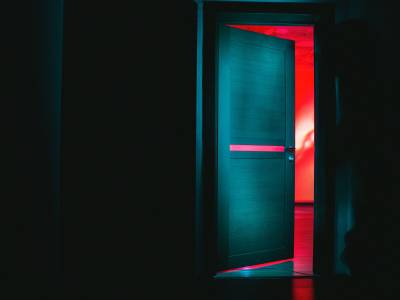Several years of sluggish demand for MBAs has forced a handful of top business schools to shut their residential programs. And the coronavirus pandemic may imperil more campus courses while boosting the growth of online degrees — one industry leader expects all but 15 traditional MBA programs to literally go out of business in the next five years.
In June, Purdue University in Indiana announced the closure of its campus two-year MBA to new students following a 70 percent drop in demand in the past decade. Increased competition for students, larger marketing and scholarship budgets sealed Purdue’s MBA’s fate.
“We now spend considerably more to recruit a class than we generate in tuition revenue from that class,” David Hummels, the dean of Purdue’s Krannert School of Management, said in a letter to students. “That is simply not sustainable, particularly in light of significant financial adjustments that are necessary in the wake of the Covid pandemic.”
A growing number of US MBA programs have shuttered
A combination of high fees, anti-immigrant rhetoric and a once booming economy have caused five consecutive years of application falls across the US, according to the Graduate Management Admission Council. That forced several US business schools to exit the MBA market, dropping their full-time two-year courses and shifting resources to online education — a growth market.
Purdue joins a growing list of closures: in April the University of Missouri halted its full-time MBA program and so did the Opus College of Business in Minnesota. According to data from AACSB International, a key industry association, more than 100 schools shut their residential two-year MBAs between 2014 and 2018.
The University of Illinois at Urbana-Champaign last year said it would disband its full-time and part-time MBA programs and focus on its popular iMBA — an online program that has grown fast. Like other institutions, Purdue has also enjoyed success with its Online MBA.
The coronavirus crisis is accelerating a slow shift online for business education. “A move to remote work has piqued the interest of those who never considered online education – and now they are seeking it out,” says Brooke Elliott, associate dean at Illinois’ Gies College of Business, where applications for the iMBA are up by 35 percent year-over-year.
Lower-ranked schools at risk
While the residential MBA market appears to have rebounded for the top schools as prospective students shelter from a jobs market roiled by the coronavirus, many lower-ranked institutions appear vulnerable.
The coronavirus crisis has accelerated a “flight to quality” in the MBA market, where students paying top dollar for tuition limit their interest to only a few highly ranked institutions. “There is more trust in a top program that ensures academic rigor and a great experience, even when forced to go digital,” says Benoit Banchereau, executive director of admissions at HEC Paris.
Business schools are reeling from hits to their finances from campus closures during lockdown and having to hastily invest heavily in online learning environments.
Harvard, Wharton, Stanford and other schools have also come under pressure to discount or even reimburse fees for current students who feel short-changed by what they regard as sub-standard remote learning. Most schools have resisted, citing the high fixed costs of teaching facilities and faculty payroll.
Less prestigious institutions do not have deep financial resources from alumni donations and endowments. “More MBA programs that are outside the top ranks will be forced to shut down their traditional full-time programs,” says Chioma Isiadinso, chief executive of the Expartus admissions agency in New York. “I won’t be surprised to see significant closures in this range. Top programs are less likely to face this predicament, given the endowments.”
A recent survey of 50 deans by Eduvantis, an education consultancy, found half thought the coronavirus would hasten the closure of business schools.
The end of brick and mortar campuses has long been foretold, but this never really materialized. Business schools have been in an arms race to build ever more plush facilities in recent years to capture students in what has been a tough admissions market, even as online learning has proliferated.
Ding Yuan, dean of Shanghai’s China Europe International Business School, believes the MBA market was reaching saturation before the pandemic: it is inevitable that some programs will not be able to compete. “Covid-19 has no doubt put pressure on our industry, like others. Products that were in trouble pre-pandemic may well be pushed over the edge. MBA programs are no different,” he says.
“It’s hard to deny that in some parts of the world the MBA may have reached its peak,” Yuan says, adding that China and other parts of Asia are enjoying robust demand.
A growing fear that international students won’t show up
While the top schools are now riding high on application increases thanks to the economic downturn that reduces the opportunity cost of full-time study, there are concerns that international students who often pay higher fees will not show up for the start of term due to travel curbs and visa application logjams.
US President Donald Trump rescinded a controversial visa policy that risked deporting overseas students whose classes moved fully online following lawsuits from Harvard and MIT. But for many prospective students the incident may compound the anti-immigrant rhetoric that has been blamed for a fall in demand for MBAs before the pandemic.
MBA programs that can draw on local students are less exposed to a drop in overseas demand. But competition for domestic candidates could crowd out less prestigious institutions.
Ted Snyder, the former veteran dean of Yale School of Management, expects the coronavirus crisis to accelerate the trend of course closures. In a dire assessment of the longevity of the two-year MBA, he foresees only 15 traditional programs to be in business in five years’ time.
“Going forward, even the top schools will face fundamental challenges,” says Snyder. “For some, it will be existential: not enough good students, not enough top recruiters and not enough resources to make the whole experience worthwhile.”
For Yuan at Ceibs, continuous innovation is the key to longevity. The pandemic is already prompting business schools to revamp their curricula, adding more courses on crisis leadership, supply chains, sustainability, healthcare and risk management, to meet demand for new skills in a fragile post-corona world.
Yuan says: “If course content does not reflect real world challenges facing the business leaders of today and tomorrow, and provide students with the tools to tackle them, then why would any young professional leave their job to pursue a full-time MBA?”










